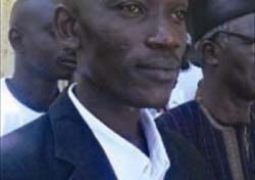Three people in Mali died of the virus: a two-year girl, a 25-year nurse and a Guinean Imam who went to Mali. So far four cases have been confirmed in Mali.
Ebola death toll rises to 5,160 out of 14,098 cases in 8 countries, WHO said.
More than 400 Sierra Leonean health workers are on strike over unpaid allowances.
No signs of worsening security in Liberia due to Ebola, said UN.
About 20 injured UN troops are quarantined in Mali clinic.
Ebola-affected countries lose more in corporate tax dodging than they spend on health
ActionAid calls on G20 to clamp down on tax dodging
Liberia, Sierra Leone and Guinea have been losing more to corporate tax dodging than they spend on healthcare, according to international charity ActionAid today. The three countries worst affected by the Ebola virus lost an estimated $287.6m through corporate tax dodging in 2011 and spent just $237m on health.
ActionAid is calling on the G20 meeting in Brisbane this weekend to clamp down on tax dodging and ensure that companies doing business in developing countries pay their fair share of tax. This would help provide more money for vital public services including schools and healthcare.
Extreme poverty, weak governance and public health spending amongst the lowest in the world meant that Liberia, Sierra Leone and Guinea were ill-equipped to deal with the Ebola virus. Before the outbreak, the three countries had an average of one hospital bed per 2,128 people while Australia has one hospital bed per 262 people.
“Liberia had just 51 doctors for almost 4.2 million people – that is only one doctor to help more than 80,000 people in a country where preventable, curable diseases like malaria, measles and TB claim thousands of lives each year. If Liberia had a stronger health system in place, a lot more could have been done earlier to control the spread of Ebola.
“Greater investment is needed and big businesses profiting from Liberia must contribute more by paying their fair share of tax to help provide better healthcare for our citizens,” said Korto Williams, country director, ActionAid Liberia.
Western aid is also essential to support the building of effective health systems and developing countries have a responsibility to ensure that where taxes are collected, they are spent on public services that benefit everyone, not just elites.
“Ending tax dodging is not the panacea for the present crisis. But it would help ensure that there is more money available to spend on health as well as other vital public services like schools and clean water.Better public services will be needed when we set about rebuilding our nations and economies once again, and they will be key to preventing the next crisis before it starts,” said Williams.
The African Union estimates that Africa loses up to $60bn each year due to tax dodging by big companies. That is more than they receive in aid from rich countries.
But ActionAid warns that the current G20 plans - known as the Base Erosion and Profit Shifting process - to tackle tax dodging will do little to help African and other developing countries ensure that multinationals pay their fair share of tax.
“Five years ago the G20 agreed to end the era of tax havens but so far it has just been another empty promise to the world’s poorest countries.
The current proposals will largely benefit rich countries and fail to answer the crucial question of where companies should pay tax on money earned in developing countries.
It is time to take the issue to the United Nations, where developing countries have not only an equal say but also an equal vote,” said Archie Law, executive director, ActionAid Australia.
Australian Eastern Standard Time, 14 November.


